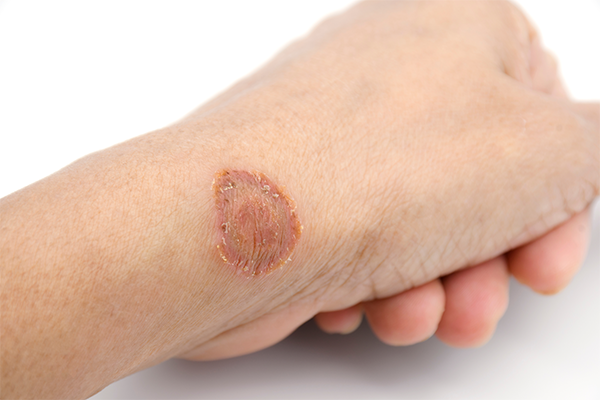
Let’s be honest—no one wants to talk about worm infections. It’s not exactly dinner table conversation, is it? But the truth is, worm infections are far more common than most people realise, and they can affect anyone, no matter how clean or careful you are. The good news? Once you know what to look out for and how to tackle them, you can get back to feeling yourself in no time. And if you ever feel unsure about your symptoms or just want expert guidance, our Internal Medicine Doctors in Patiala are always there to help you navigate your health concerns with understanding and care.
Synopsis
What is Worm Infection?
Worm infection takes place when parasitic worms infest the body, typically via contaminated food, water, or soil. These uninvited visitors can reside in the intestines or other organs and bring about a variety of problems. Some infections are fairly harmless, but others may cause considerable discomfort or issues if not treated.
Detection at an early stage and treatment are important to eliminate the infection and avoid spreading it to others.
Worm Infection Symptoms: What Should You Watch Out For?
Worm infection symptoms can be sneaky or, in some cases, impossible to ignore. Here are some signs that might set off alarm bells:

-
That unmistakable itching around your bottom (especially at night)
-
Tummy aches that just won’t quit, or feeling bloated for no clear reason
-
Losing weight without trying, or just not feeling hungry
-
Spotting tiny worms in your stool (yes, it’s unpleasant, but it happens)
-
Feeling tired, cranky, or having trouble sleeping
-
Diarrhoea or a change in your usual toilet habits
-
Red, ring-shaped rashes (a classic sign of ringworm, which, confusingly, is a fungus and not a real worm)
If you’re ticking off more than one of these worm infection symptoms, don’t panic. Most worm infections are easily treated, especially when you catch them early.
How Do You End Up With a Worm Infection?
Worm infections often sneak in when you least expect them. Kids are especially prone—think playgrounds, sandpits, and the occasional forgotten hand wash. Diarrhoea in kids is common but often gets overlooked when it occurs as a symptom of worm infection. But adults aren’t immune, either. You can pick up a worm infection from undercooked food, contaminated water, or even just touching a surface that’s carrying worm eggs. And, if you’ve got pets, remember they can be unwitting culprits too.
Natural Remedies: Can You Treat Worm Infections at Home?
If you’re keen to try a natural approach before heading to the pharmacy, there are some home remedies that people have sworn by for generations. Here’s what’s often recommended:
-
Garlic: It’s not just for warding off vampires—some say eating more fresh garlic can help your body fight a worm infection.
-
Pumpkin seeds: Crunchy, tasty, and believed to help paralyse worms so your body can get rid of them more easily.
-
Coconut: Whether it’s oil or grated coconut, this kitchen staple is a traditional favourite for worm infection treatment in some cultures.
-
Papaya seeds: Some allegedly even expel intestinal worms, but the taste is not everyone’s cup of tea.
-
Hygiene, hygiene, hygiene: Wash your hands; keep nails short; wash bedding and underwear in hot water—worms will be stopped dead in their tracks.
Natural remedies can be a gentle first step, but if you’re still seeing worm infection symptoms after a few days, it’s time to get serious.
Medical Worm Infection Treatment: What Works?
When it comes to worm infection treatment, modern medicine is incredibly effective. Here’s what usually happens:
-
Creams for the skin: If you’re dealing with a ringworm infection, treatment is usually an antifungal cream or, in stubborn cases, oral medication.
-
Treating the whole family: Worms are sneaky and spread fast, so it is often recommended that everyone in the house gets treated at the same time.
-
Keep up the hygiene: Even after starting worm infection treatment, keep washing hands, clothes, and bedding to avoid reinfection.
If you’re worried about side effects or if your worm infection symptoms are sticking around, don’t hesitate to consult our internal medicine experts in Patiala.
When Should You Call Us?
Don’t tough it out if:
-
The itching or tummy pain is severe and not going away
-
You spot blood in your stool
-
You have a high fever or can’t stop vomiting.
-
You think a baby or toddler might have a worm infection.
-
Prompt worm infection treatment is always best—there’s no need to suffer in silence.
If any of these symptoms sound familiar, or you’re simply not sure what to do next, our Internal Medicine specialist at Patiala is just a call away, ready to offer expert advice and compassionate care. Contact us and book an appointment now.
FAQ's
The big giveaways are itching around the bottom, tummy pain, weight loss, tiredness, and sometimes seeing worms in your stool. Ringworm infection treatment is needed if you notice red, ring-shaped rashes.
Handwashing is best! Nails should be kept short, towels should not be shared, food should be cooked well, and pets should be dewormed.
Antiparasitic tablets are usually prescribed by doctors for children. While natural remedies such as pumpkin seeds are helpful, always check with your GP before starting anything new.
Treatment for ringworm infection usually consists of antifungal creams or tablets, as ringworm is, in fact, a fungus and not a worm. Other worm infections, however, are treated using antiparasitic medication.
Reports have it that garlic and pumpkin seeds probably will help treat a worm infection, but such home remedies should never replace medical treatments.





















 6 Min Read
6 Min Read


















